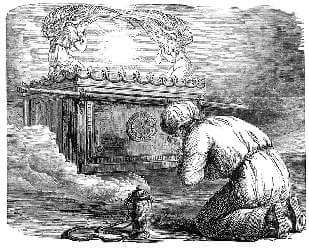Sin began in a garden. Thousands of years later, Jesus Christ stood in another garden and announced His ultimate victory.
The Easter story has many amazing scenes: Jesus’ last Passover meal with His disciples, His arrest and brutal scourging, His crucifixion between two criminals, and the dramatic darkness that fell on Jerusalem at the moment of His death. But my favorite part of the story is when Mary Magdalene peered inside Jesus’ tomb on that resurrection morning. John 20:11-12 describes it this way:
“But Mary was standing outside the tomb weeping; and so, as she wept, she stooped and looked into the tomb; and she saw two angels in white sitting, one at the head and one at the feet, where the body of Jesus had been lying” (NASB).
| “The death and resurrection of Jesus brought a great reversal. While Genesis 3 brought pain, slavery to sin and alienation from God’s presence, John 20 brought healing, deliverance and full restoration of fellowship with the Son of God.”“ |
The two angels were poised at the head and foot of Jesus’ grave. Does this remind you of anything familiar? These heavenly creatures must have looked exactly like the cherubim that decorated the cover of the ark of the covenant—the golden box that housed the very presence of God in the tabernacle of Moses.

Yet on Easter morning, after the Lamb of God had been sacrificed on Calvary’s cross, the stone covering Christ’s tomb was rolled away to reveal this profound sight. The two angels appeared on top of His grave to show us that the glory of God was now accessible to us. Under the new covenant, we can run to the mercy seat!
But there is so much more to discover in this account of Mary’s encounter with the risen Christ. John 20 can only be understood if you compare it with the story of the fall of man in Genesis 3. Notice the similarities:
1. There were two gardens. Man’s fall occurred in the Garden of Eden—a place of intimate fellowship with God. After Adam and Eve disobeyed, the Lord cursed the ground and banished them from paradise. Yet on Easter Sunday, Christ appeared in a garden (see John 19:41) to remind us that now, because of His redemption, intimate fellowship with God is available again. He reopened the doors to Eden.
2. There were two women. Sin entered the world when a serpent deceived the first woman, Eve. But on Easter Sunday, after Christ had defeated Satan through His atoning death, He first appeared to a woman—one who had previously been in bondage to Satan’s demons (Luke 8:2 says Jesus previously had cast seven demons out of her). Her life reminds us that Jesus offers us total deliverance from the bondage of our past.
3. There were two gardeners. In the story of the fall, Eve and her husband, Adam—the tender of Eden—rebelled against God after she was deceived. Yet on Easter morning, Mary Magdalene met a man outside the tomb whom she thought was the gardener. When she realized it was Jesus she exclaimed, “Rabboni!” and began to embrace Him. The woman in the second story is not with Adam; she is with Christ, “the last Adam.” We now have this promise: “For as in Adam all die, so also in Christ all will be made alive” (1 Cor. 15:22).
4. There were two sets of angels. After Adam and Eve fell into sin, God posted the cherubim with a flaming sword east of paradise to keep mankind out (see Gen. 3:24). Yet on Easter morning, the angels appeared in the garden not to banish man from God’s presence but to invite us to behold the risen Messiah.
Why are there so many parallels in these two stories? The Holy Spirit wants us to know that in God’s great plan of redemption He unraveled Eden’s curse. The death and resurrection of Jesus brought a great reversal. While Genesis 3 brought pain, slavery to sin and alienation from God’s presence, John 20 brought healing, deliverance and full restoration of fellowship with the Son of God.
As we celebrate Easter this weekend, I pray you will have a John 20 encounter. I challenge you to peer into the opened tomb and behold Him like you never have before. Remember: The stone has been rolled away. The angels now invite us to approach the mercy seat and behold the indescribable glory of our risen Savior.
J. Lee Grady served as editor of Charisma for 11 years and is now contributing editor. His new book, The Holy Spirit Is Not for Sale, is now in stores.














































